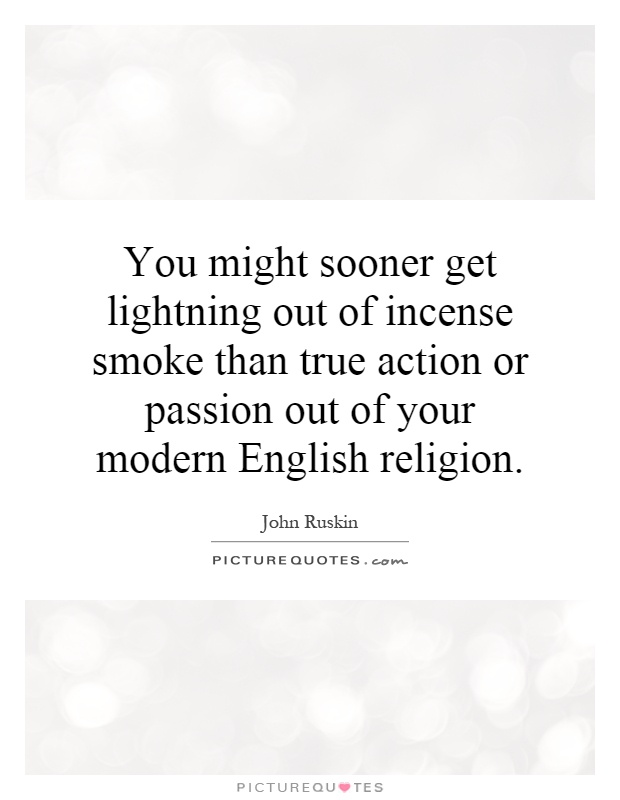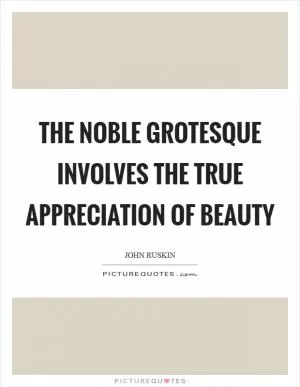You might sooner get lightning out of incense smoke than true action or passion out of your modern English religion

You might sooner get lightning out of incense smoke than true action or passion out of your modern English religion
John Ruskin, a prominent English writer, art critic, and social thinker of the 19th century, was known for his strong opinions on religion and its role in society. Ruskin was critical of the modern English religion of his time, believing that it lacked true action and passion. In his view, the religion of his era was superficial and lacked the depth and sincerity that he believed true faith should possess.Ruskin's quote, "You might sooner get lightning out of incense smoke than true action or passion out of your modern English religion," reflects his belief that the religious practices of his time were empty and devoid of true meaning. He saw the rituals and ceremonies of the church as mere formalities, lacking the genuine passion and commitment that should be at the heart of religious belief.
Ruskin believed that true religion should inspire action and passion in its followers. He saw religion as a force for good in society, capable of motivating people to act with compassion and integrity. However, he felt that the modern English religion of his time had lost sight of this purpose, becoming more concerned with outward appearances and empty gestures than with true faith and devotion.
Ruskin's criticism of modern English religion can be seen as a reflection of his broader concerns about the state of society in the 19th century. He believed that the industrial revolution and the rise of capitalism had led to a moral and spiritual decline, with people becoming increasingly materialistic and self-centered. In this context, Ruskin saw religion as a potential antidote to the moral decay of his era, but he was disappointed by what he saw as the superficiality of the religious practices of his time.
Overall, Ruskin's quote highlights his belief in the power of true faith to inspire action and passion in individuals. He saw religion as a force for good in society, capable of bringing about positive change if practiced with sincerity and devotion. However, he was critical of the modern English religion of his time, believing that it had lost sight of these ideals and had become a mere shadow of what true religion should be.












 Friendship Quotes
Friendship Quotes Love Quotes
Love Quotes Life Quotes
Life Quotes Funny Quotes
Funny Quotes Motivational Quotes
Motivational Quotes Inspirational Quotes
Inspirational Quotes